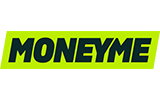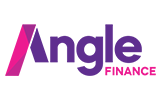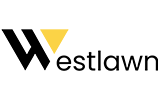BUSINESS FINANCE
Compare Your Best Asset Finance Options & Rates
Get the best asset finance interest rates you qualify for from 50+ lenders.
Fast, hassle-free funding up to $20 million
Find the best finance fit for your business and asset
Get help from our experts at every step
Our business finance experts are here to help. Updated 13 Feb 2026.

Compare asset finance from these lenders and more
Loan purpose Loan amount | ||
 | Group And General Business LoanInterest rates from 6.39% - 10.89% per annum Loan amounts $10k - $350k Loan terms 1 - 5 years | Compare now on Money.com.au |
 | Resimac Business LoanInterest rates from 6.64% - 13.59% per annum Loan amounts $5k - $450k Loan terms 1 - 7 years | Compare now on Money.com.au |
 | Dynamoney Business LoanInterest rates from 6.69% - 19.40% per annum Loan amounts $2k - $1m Loan terms 6 months - 7 years | Compare now on Money.com.au |
 | MoneyMe Business LoanInterest rates from 6.75% - 22.00% per annum Loan amounts Up to $150k Loan terms Quoted on application | Compare now on Money.com.au |
 | Flexicommercial Business LoanInterest rates from 6.85% - 13.90% per annum Loan amounts $10k - $750k Loan terms Up to 7 years | Compare now on Money.com.au |
 | Plenti Business LoanInterest rates from 6.89% - 13.49% per annum Loan amounts Up to $150k Loan terms 3 - 7 years | Compare now on Money.com.au |
 | Angle Finance Business LoanInterest rates from 6.99% - 16.95% per annum Loan amounts $5k - $500k Loan terms 3 - 7 years | Compare now on Money.com.au |
 | Pepper Business LoanInterest rates from 6.99% - 16.94% per annum Loan amounts Up to $250k Loan terms 1 - 7 years | Compare now on Money.com.au |
 | Metro Business LoanInterest rates from 7.15% - 9.20% per annum Loan amounts $10k - $300k Loan terms 2 - 5 years | Compare now on Money.com.au |
 | Westpac Business LoanInterest rates from 7.20% - 10.01% per annum Loan amounts $15k - $650k Loan terms Quoted on application | Compare now on Money.com.au |
 | Azora Finance Business LoanInterest rates from 7.30% - 16.24% per annum Loan amounts $1k - $250k Loan terms Quoted on application | Compare now on Money.com.au |
 | Branded Financial Services Business LoanInterest rates from 7.45% - 11.55% per annum Loan amounts $5k - $250k Loan terms 1 - 7 years | Compare now on Money.com.au |
 | Selfco Pty Ltd Business LoanInterest rates from 7.49% - 12.90% per annum Loan amounts $25k - $300k Loan terms Up to 5 years | Compare now on Money.com.au |
 | BOQ Business LoanInterest rates from 7.50% per annum Loan amounts Up to $250k Loan terms Quoted on application | Compare now on Money.com.au |
 | ANZ Business LoanInterest rates from 7.65% - 9.25% per annum Loan amounts Up to $1m Loan terms 3 - 7 years | Compare now on Money.com.au |
 | Capital Finance Business LoanInterest rates from 7.70% - 14.00% per annum Loan amounts $5k - $150k Loan terms Quoted on application | Compare now on Money.com.au |
 | Vestone Capital Business LoanInterest rates from 7.74% - 16.99% per annum Loan amounts $2k - $1m Loan terms 1 - 7 years 24 months min trading history | Compare now on Money.com.au |
 | Liberty Business LoanInterest rates from 7.95% - 17.45% per annum Loan amounts Up to $350k Loan terms 1 - 7 years | Compare now on Money.com.au |
 | Moneytech Business LoanInterest rates from 7.99% - 17.74% per annum Loan amounts $25k - $2m Loan terms Quoted on application | Compare now on Money.com.au |
 | Westlawn Business LoanInterest rates from 8.25% - 10.75% per annum Loan amounts $20k - $250k Loan terms 3 - 5 years | Compare now on Money.com.au |
You’ve viewed 20 of 41 items |
How to get asset finance through Money.com.au
In just three simple steps...
Step 1
Tell us what you need
So we can understand the asset you’re looking for and some key details about your business.
Step 2
Compare lenders
We’ll find you asset finance options tailored to your business and the specific asset you need.
Step 3
We’ll help you apply
We’ll do most of the work for you, making it faster and easier to get your finance approved.
What is asset finance?
Asset finance is a type of business lending used to purchase physical assets your business needs to operate, grow or scale. The lender provides funds to buy or lease the asset, and you repay the finance in instalments over a term of 1 to 7 years.
You can use asset finance to fund assets such as:
- Business vehicles (e.g. utes, vans, trucks, trailers)
- Equipment and machinery (e.g. excavators, warehousing machines, generators)
- Medical or dental devices (e.g. X-ray units, sterilisation machines)
- Commercial furniture, office fit-outs and solar panels
How asset finance works
With asset finance the asset you purchase typically acts as security for the finance, which reduces the lender's risk. Rather than paying for expensive assets outright, you spread the cost over time. That means you can invest in your business without sacrificing cash flow.
This can be especially useful for tradespeople, contractors and SMEs with seasonal income or unpredictable expenses.
The length of the asset loan or lease is typically based on the useful lifespan type of the asset you’re financing. Asset finance can be used to buy new assets or replace and upgrade existing ones.
Asset finance features
- Borrow anywhere from $10,000 to $5,000,000+
- Finance terms from 1-7 years
- Asset loan and lease options available
- Finance can be set up with or without a balloon payment option
- You may be able to claim GST credits & other tax deductions on the asset you buy
The average asset finance amount in 2025 is $73,105 across vehicles, machinery and equipment, according to Money.com.au's analysis of thousands of loan requests. For loans to purchase another business, the average is much higher at $668,696.
What are the interest rates on asset finance?
Asset finance interest rates in Australia generally start from 6.29% - 15.00% p.a., depending on the strength of your application and your business risk profile. The credit scores and overall credit history of both your business and its directors are a major factor here.
If you’re asset-backed (own a property) you will typically qualify for lower rates. That's because secured asset finance rates are typically lower than those on unsecured business loans, where there is more risk for the lender.
Your interest rate will also depend on the type of asset you’re financing and its age, with older and more specialised assets generally attracting higher rates.
The good news for business owners looking for a asset finance rates is that there is no shortage of choice. In fact, there are 14 lenders on our panel offering rates starting from below 8% p.a. as at. A further five lenders have rates starting rates below 10%. The table below shows some of the lowest rates available right now.
| Loan | Interest rates | Loan amounts | Loan terms |
|---|---|---|---|
| Group And General Business Loan | 6.39% - 10.89% | $10k - $350k | 1 - 5 years |
| Resimac Business Loan | 6.64% - 13.59% | $5k - $450k | 1 - 7 years |
| Dynamoney Business Loan | 6.69% - 19.40% | $2k - $1m | 6 months - 7 years |
| MoneyMe Business Loan | 6.75% - 22.00% | Up to $150k | Quoted on application |
| Flexicommercial Business Loan | 6.85% - 13.90% | $10k - $750k | Up to 7 years |
| Plenti Business Loan | 6.89% - 13.49% | Up to $150k | 3 - 7 years |
| Angle Finance Business Loan | 6.99% - 16.95% | $5k - $500k | 3 - 7 years |
| Pepper Business Loan | 6.99% - 16.94% | Up to $250k | 1 - 7 years |
| Metro Business Loan | 7.15% - 9.20% | $10k - $300k | 2 - 5 years |
| Westpac Business Loan | 7.20% - 10.01% | $15k - $650k | Quoted on application |
What assets can you finance?
If you qualify for asset finance with a lender, you can finance almost any asset with a serial number. This can include:
- Light vehicles Sedans SUVs Work vans Work utes Motorcycles
- Heavy vehicles Trucks Buses Specialised vehicles Trailers Yellow goods Farming & agriculture equipment
- Business machinery or equipment Construction equipment Warehousing equipment Manufacturing equipment Medical or dental equipment Landscaping equipment Office & IT equipment Solar panels & inverters
- Specialised equipment Commercial kitchen equipment (including appliances) Furniture & fit-outs Security systems ATMs Vending machines

Phil Collard, Asset finance expert
"Most lenders are quite open to any assets if the case for finance is presented in the right way. For example, lenders will want to know if the asset makes sense for your industry. So a tradie purchasing a HiLux, that makes sense. If it's an IT consultant purchasing a Tesla, that also makes sense."
Phil Collard, Asset finance expert
More than three quarters of asset finance requests (77.7%) through Money.com.au in 2025 are for a vehicle purchase, with the remainder being used for other types of business machinery and equipment. That said, overall sales of light and heavy commercial vehicles in Australia have fallen by around 2.3% in the year to August 2025 compared with the same period last year, with heavy vehicle sales particularly sluggish, according to FCAI data. The good news for buyers is that dealers are generally more open to negotiating on price in a slower market.
How to get the best deal on asset finance
To improve your chances of approval and reduce your borrowing cost:
- Choose newer assets: New, demo or almost-new vehicles are generally preferred by lenders.
- Avoid specialist imports: Niche equipment sourced overseas is harder to value and will attract a price permium, if the lender will approve it at all.
- Consider a deposit: A 10–30% deposit reduces the lenders risk and is worth thinking about if you have the funds.
- Keep your credit history clean: Clear dishonours and defaults before applying.
Don't overlook the loan structure

Phil Collard, Asset finance expert
"Thinking about the overall deal, finance structure is just as important as price. There's no point in structuring the asset loan over a longer term if you plan on getting out of it in the first third of the loan period. It's just going to hurt you on the back end with break fees."
Phil Collard, Asset finance expert
Compare asset finance options
A secured loan is just one of the options for financing an asset for your business. Here we explain how it compares to the options for leasing assets.
Asset loan
With an asset loan (also known as a chattel mortgage), you borrow money from the lender to purchase a business asset, such as a vehicle or equipment. The asset serves as collateral for the loan, which you repay with interest in regular instalments over a fixed term, similar to a mortgage.
Your business has full ownership of the asset from the outset and is responsible for all maintenance and registration costs. However, if you default on the loan, the lender can repossess the asset. The asset will be registered on the Personal Property Securities Register (PPSR) until you repay the loan. This lets other lenders know there’s a security interest on the asset.
Once you've fully paid off the asset loan, you’ll have unconditional ownership of the vehicle and the asset will be removed from the PPSR. If there’s a balloon payment at the end of the finance term, you’ll have a couple of options:
- Pay the residual balloon and decide whether to keep or sell the asset.
- Refinance the balloon amount into a new debt consolidation business loan and pay it off in regular instalments (with interest).
- Trade your asset for another one with a new finance agreement, settling the balloon amount as part of the trade-in process.
An asset loan is a popular option for small businesses with vehicle fleets and for manufacturing industries, construction companies, tradespeople and transport companies. ‘Vehicles or transport’ is by far the most common reason businesses request finance through Money.com.au (41.50% of all requests).
Asset loan tax benefits
According to the ATO, the interest on an asset loan is tax deductible as a business expense, plus depreciation (up to the ATO’s depreciation limit).
If your business is registered for GST, you may also be able to claim a credit for the GST paid on the initial asset purchase. This can be claimed as what’s called an input tax credit on your BAS for the relevant period. You can only claim a credit for the business use of the asset.
Asset loan pros & cons
Pros
- Repayments are fixed over the loan term
- Available with or without residual balloon payment to suit your business cash flow
- Option to pay an upfront deposit to reduce your loan amount & interest
Cons
- The lender can reclaim the asset if you default on the loan
- Business loans are not covered under the National Consumer Credit Protection Act (NCCP)
- Early payout fees may apply
Asset finance lease
Under a finance lease, the lender buys the asset on your behalf and leases it to you in exchange for regular payments, plus interest, over a fixed period. You’ll get the benefits and responsibilities of ownership (including upkeep costs), but the lender retains actual ownership of the asset during the lease term. Some leasing agreements include maintenance and servicing costs as part of the contract.
Depending on your agreement, you’ll have a few options at the end of a finance lease term:
- Pay the pre-agreed residual amount and return the asset at the end of the lease term.
- Buy the asset from the lender by making a final residual payment. If the asset's value exceeds the residual amount, your business can profit from the purchase by selling the asset. But, your business could also incur a loss if you sell the asset for less than the residual amount.
- Refinance the residual amount into a new lease agreement.
- Trade in your current asset to purchase another under a new finance agreement. You could use the proceeds from the trade-in to pay the balloon payment.
A finance lease is generally suitable for high-value assets or assets with a longer lifespan, like company vehicles, heavy machinery and specialised equipment. It provides more owner benefits (i.e. unrestricted use of the asset with the option to buy it at the end of the lease term) for a borrower than an operating lease.
Tax advantages of finance leases
Finance lease payments and the GST included in the lease charges over the lease term may be tax deductible, according to the ATO.
To claim GST credits on lease charges, you treat each payment on your BAS as a separate purchase for each tax period, even though each payment is for the same goods under the same lease agreement, according to the ATO.
If you purchase the asset at the end of the lease term, you may also be eligible to claim the GST you paid on the purchase.
You may have to record your finance lease on your business balance sheet as a lease liability.
Finance lease payments and the GST included in the lease charges over the lease term may be tax deductible, according to the ATO.
Finance lease pros & cons
Pros
- Repayments are fixed over the lease term
- Option to own the asset at the end of the lease term
- If the asset's value increases by the end of the contract, you’ll only have to pay the amount agreed in advance, potentially resulting in a profit for your business
Cons
- Your business is responsible for all upkeep costs for the asset (e.g. maintenance, registration, insurance)
- Throughout the contract, you’ll pay close to the full value of the asset (plus interest), making it a pretty expensive option
- It may be difficult (and expensive) to cancel a finance lease before the lease term ends
Operating lease
An operating lease also allows your business to lease an asset in exchange for regular fixed repayments (or based on usage), including servicing and maintenance costs. You can commonly upgrade the asset or equipment within the lease period, but there’s no option to own the asset at the end of the contract.
Depending on your agreement, you’ll have a two options at the end of an operating lease term:
- Return the asset to the lessor at the end of the lease term (the asset is then usually sold to a third party on behalf of the lessor).
- Renew the lease under new terms.
Operating leases are shorter-term agreements commonly used for assets that need to be upgraded frequently, like IT equipment, payment or telecommunication systems, etc.
Tax advantages of operating leases
According to the ATO, operating lease payments and the GST included in the lease charges may be tax deductible during the lease term. Operating leases must also be recorded on your business balance sheet as a lease liability.
Operating lease pros & cons
Pros
- Repayments are fixed over the lease term
- Maintenance and running costs are included in repayments
- You can cancel the lease before the term ends
Cons
- No option to own the asset at the end of the lease term
- You have to renegotiate and renew the lease after the contract period ends if you want to keep using the equipment/assets
- No potential gains from asset appreciation (since you never own the asset)

How to choose the best business asset finance option
Do you need to own the asset?
This might be important for company vehicles or equipment you rely on to run your business. On the other hand, you may prefer to lease assets that become outdated quickly, like IT or office equipment, or assets you only need for a short period of time (e.g. when scaling your business).
Will you still need the asset at the end of the finance term?
For instance, a removalist business financing a fleet of delivery vans would likely require the ongoing use of the vehicles after the finance term ends. In this case, an asset loan or finance lease with the option of ownership at the end of the lease term may be suitable.
Are there any tax deductions available?
With an asset loan, interest on the loan, GST and the asset’s depreciation may be tax deductible. When you’re leasing an asset, you may not be able to claim depreciation as the lender owns the asset during the lease term, according to the Australian Accounting Standards Board (AASB).
Might you pay off the finance early?
Early payout fees generally apply to fixed-term asset finance contracts. However, it may be easier to pay off an asset loan early than a finance lease. That’s because leases are usually non-cancellable contracts and may be costly to terminate, according to the AASB.
How to apply for asset finance
Applying for a business loan to finance an asset involves four key steps:
- Compare asset finance rates & lenders Doing your due diligence can go a long way. ‘Shop the rates’ between bank and non-bank asset finance providers and look at their customer reviews. If you’re using a business finance broker, they can show you indicative asset finance rates, fees and features from different lenders. Comparing options like this generally doesn't impact your credit report. Just remember, the interest rate you're offered may differ from the lender's advertised rate.
- Submit documentation If you’re applying for finance for less than $150,000, you generally only need to provide proof of ID and trust deeds for the business, as well as a signed declaration of your business revenue. For asset finance amounts above $150,000 you will likely also need to provide a Profit & Loss Statement and Balance Sheet prepared by an accountant.
- Get pre-approval If you meet the lender’s requirements, you’ll be pre-approved for a maximum amount. Pre-approval typically lasts up to 90 days, which gives you time to source an asset and negotiate the purchase.
- The deal is settled Once you have agreed the purchase, the lender will want to see an invoice for the asset. If it’s a private sale, you’ll need to provide the seller’s details as well as images of the asset so these can be checked by the lender.
More business loan guides
Some of our happy business loan customers
FAQs about asset finance
What’s the difference between low doc and full doc asset finance?
Low doc and full doc asset loans vary based on how much documentation is required by the lender in order to be eligible, with low doc applications requiring little to no documentation. A full doc application will require several key business documents.
1. Full-doc asset finance
Requires standard business documentation, such as:
- BAS statements
- Business bank statements (6–12 months)
- Financial reports (P&L, balance sheet)
- Proof of trading history (ABN, GST registration)
2. Low-doc asset finance
Designed for newer businesses and sole traders who may not have full financials. Instead, lenders may accept:
- A self-declaration of income (signed)
- Proof of ABN and GST registration (usually 12+ months)
- Photo ID and asset details
Can I get short-term asset finance?
Yes, some lenders offer short-term asset finance with terms of less than 12 months and even as little as one month. Short-term finance can be a cost-effective option to acquire an asset. For example, a business may opt for a short-term lease to fulfil a bulk order without buying equipment they may not use again.
If you’re opting for a short-term asset finance contract, you’ll pay less interest overall, but your repayments over the term will be higher (compared to spreading the cost over a longer period).
Can I get asset finance with a balloon payment option?
This is a residual lump sum due at the end of the loan or lease term to pay the outstanding debt on the asset. The balloon payment can range from 20-40% of your finance amount, depending on your agreement with the lender. A balloon payment effectively reduces your regular repayments and can help preserve cash flow, but results in a larger amount owed at the end of the loan or lease term.
Can new businesses and startups access asset finance?
Yes, new businesses and startups can still get finance to buy essential vehicles or equipment, if the asset(s) secure the loan (meaning unsecured finance may not be an option). Keep in mind that you’ll still need to provide sufficient financial documentation to prove you can service the loan.
Alternatively, you could consider a low doc business loan, which requires less documentation than a traditional business loan application. Although, you’ll likely pay a higher interest rate to offset the lender’s risk of financing a business with limited credit or trading history.
Startups with significant assets or new business owners who own a home (i.e. asset-backed borrowers) generally qualify for asset finance.
Can my asset be repossessed if I default on the loan?
Yes, with secured asset finance, the lender can repossess the asset if you cannot make the repayments during the finance or lease term (subject to the terms of the loan agreement).
With unsecured finance, the lender cannot reclaim the asset. As a result, interest rates on unsecured finance are usually higher.
Can I pay off my asset loan early?
Yes, you can generally repay an asset loan (i.e. chattel mortgage) early through extra payments or a refinance, although early payout fees may apply.
Terminating a finance lease agreement before the term ends is typically more difficult. It may result in significant additional costs, including an ‘early payment loss’ fee payable to the lender, according to ANZ.
It’s best to get an estimate of exit costs or early payout fees before you pay out your loan early or cancel your finance lease.
Can I get asset finance if I have bad credit?
Yes, you can still qualify for asset finance if you have impaired credit, although you’ll generally pay a higher interest rate to offset the lender’s risk. When assessing your asset finance application, lenders typically look at your business revenue and serviceability, not just your credit rating.
Generally it's easier to be approved for finance if the loan is secured by an asset (e.g. a bad credit truck loan) as this reduces risk for the lender. Alternatively, you could apply for a bad credit business loan via a specialist lender.
What is asset finance not suitable for?
Generally, asset finance is not suitable for covering ongoing operating expenses (e.g. to buy stock or pay staff wages), as it is intended as a long-term form of borrowing.
For ongoing short-term finance, businesses can consider a business line of credit, a business overdraft or a short-term business loan. For businesses with outstanding invoices, invoice finance is another option.
Do I need to own property to get approved?
Not necessarily but if you are an asset-backed borrower, meaning you own property (not just the asset that you will be buying with the finance), you will generally find it easier to get approved. How long does approval for asset finance take? Lenders can generally provide pre-approval on an asset finance application within a few hours if the application is straightforward.
Can I finance second-hand equipment?
Yes, but financing a second-hand asset may mean you need to pay a higher interest rate on the loan. The older the asset, the higher the risk for the lender and this is usually reflected in the price.
What if I haven’t found the asset yet?
You can still get pre-approved for asset finance even if you do not have a specific asset identified. The lender will wait until you have found an asset and have supplied an invoice for the purchase before providing final approval.
What’s the difference between going through a broker and applying with a bank directly?
Banks may offer lower rates in some cases but can take weeks to process your application. A broker can compare multiple lenders, match you with a suitable product, and often settle deals within 1–3 days.
What happens if I change my mind after being pre-approved?
You’re under no obligation to proceed if a lender gives you pre-approval. However, if your circumstances or the asset you plan to purchase change significantly, the lender may need to reassess the application.
Important Disclosures
General information only
The information on this page is general in nature and has been prepared without considering your objectives, financial situation or needs. You should consider whether the information provided and the nature of any loan product is suitable for you and seek independent financial advice if necessary.
We are not providing you with a recommendation or suggestion about a particular product. You should read the relevant disclosure information from the lender before deciding whether to apply for or continue to use a particular product.
What products and information is shown?
The products displayed in our business loan comparison tables are those available from Money.com.au’s lending partners that match the loan criteria selected at the top of the table. The comparison does not cover all lenders available in the market, nor does it cover all products available from those providers shown. The comparison does not include all product features, costs and eligibility criteria that may be relevant to you.
Product information, such as interest rates, fees and charges, is subject to change without notice. Please check current product details with one of our business lending specialists or directly with the lender before proceeding.
How business loan products are sorted and filtered by default
Users can easily change the sort order and apply product filters to our product comparison tables based on what they need. However, when you first arrive on a page, a default loan amount and purpose is selected and business loans are automatically sorted by:
- Lowest starting interest rate, then;
- Provider name (A-Z)
The order of the products in our business loan comparison tables is not influenced by any commercial arrangements.
Commission we may earn
If you get a business loan as a result of visiting this page and/or dealing with a Money.com.au business lending specialist, we may earn a commission from the lender. Read more about how we make money.
Money.com.au has strict rules and policies in place that ensure we can provide accurate and reliable information to consumers and businesses about financial products, without it being influenced by our commercial arrangements.








